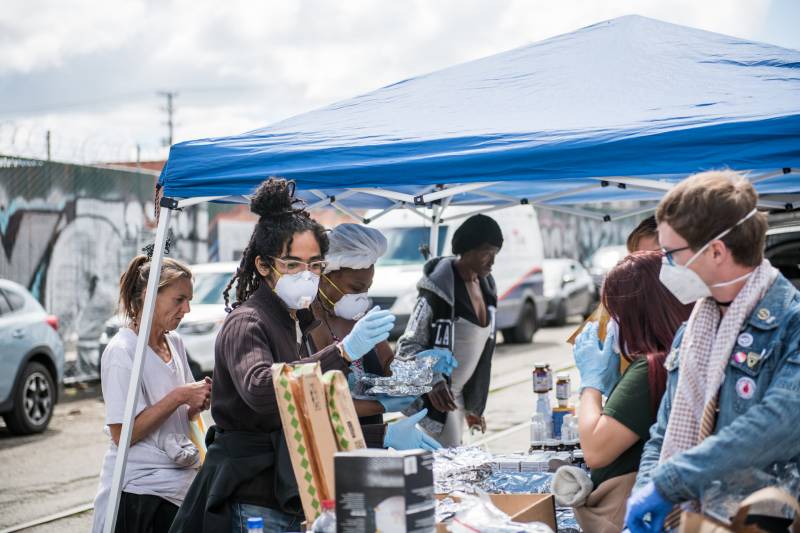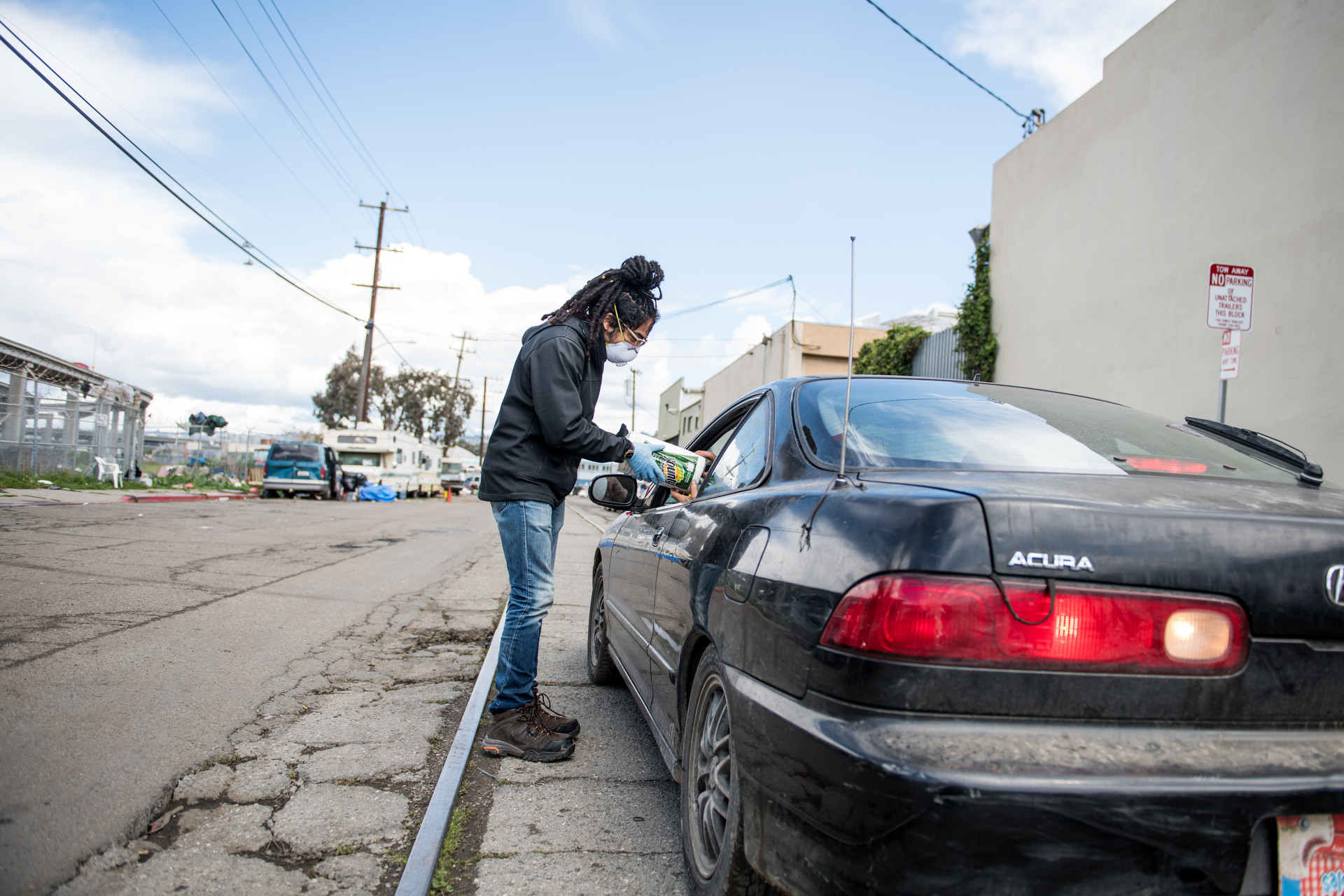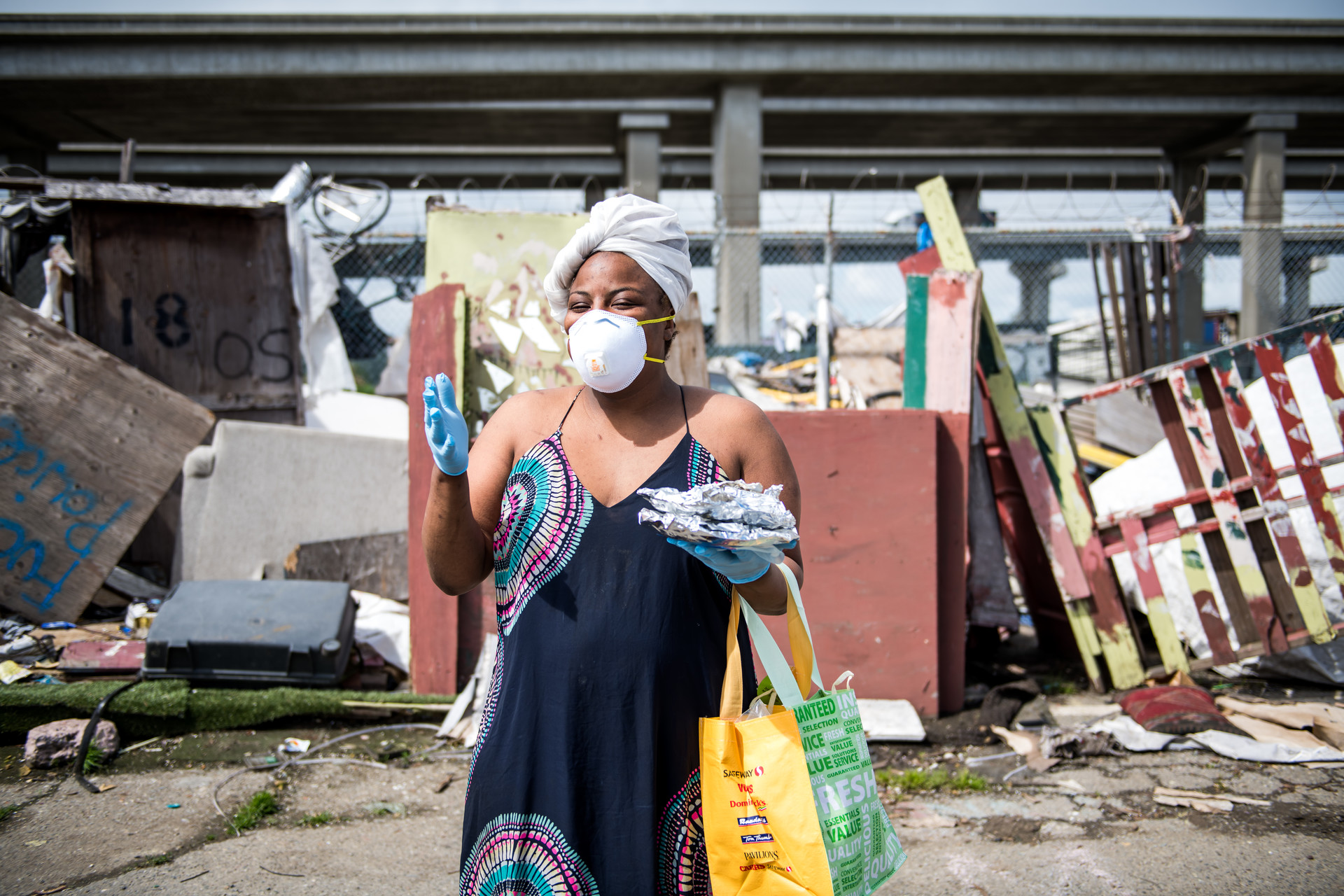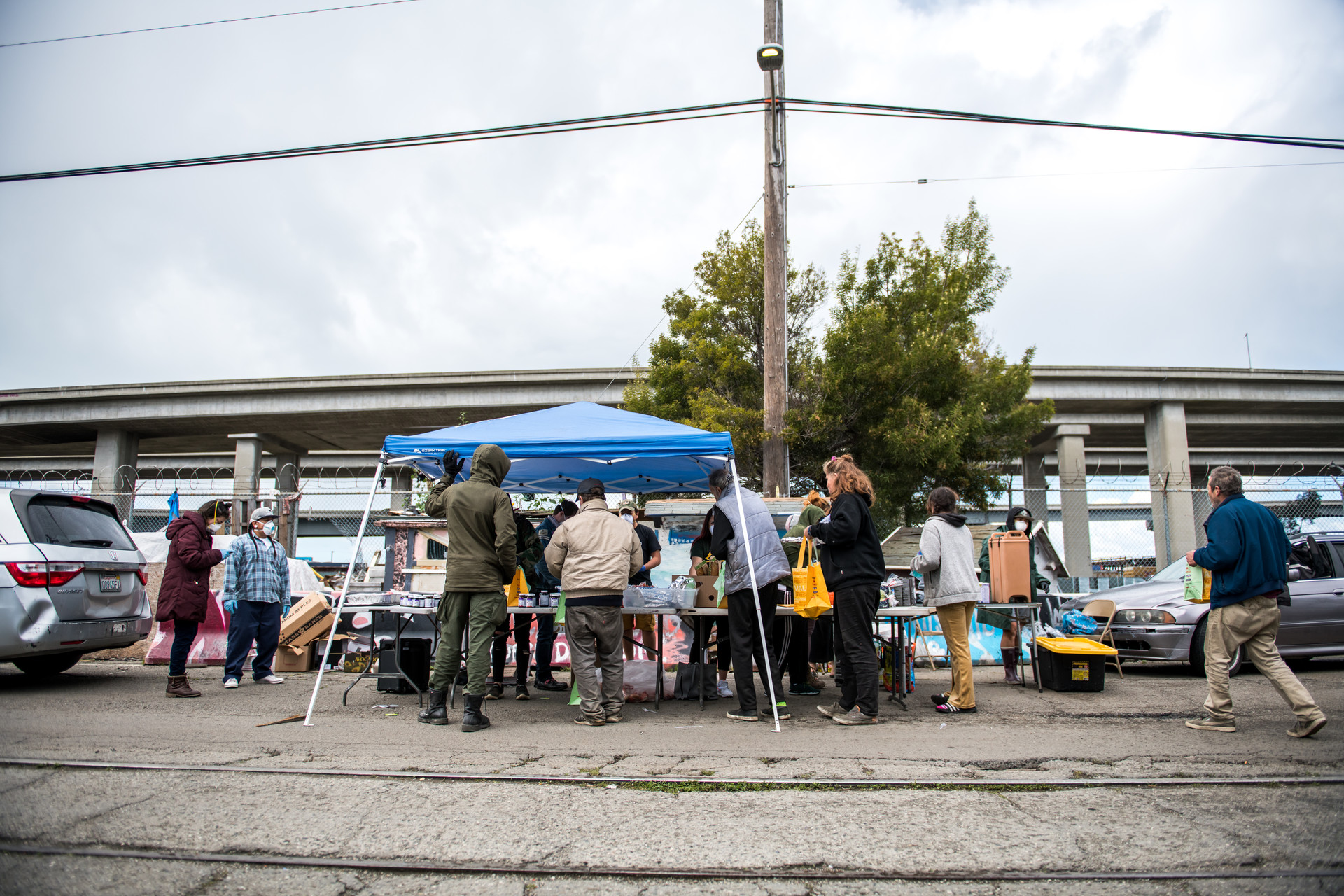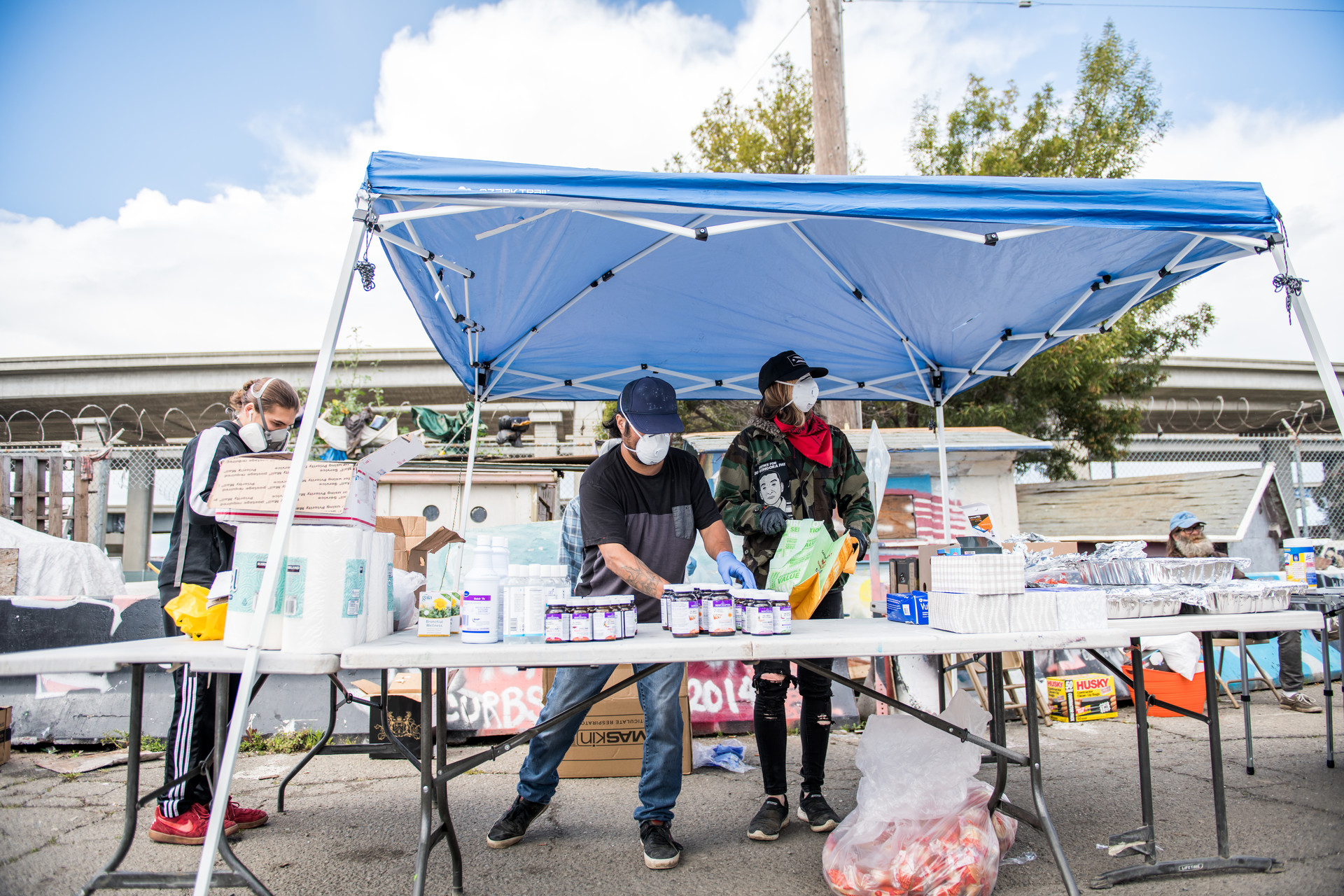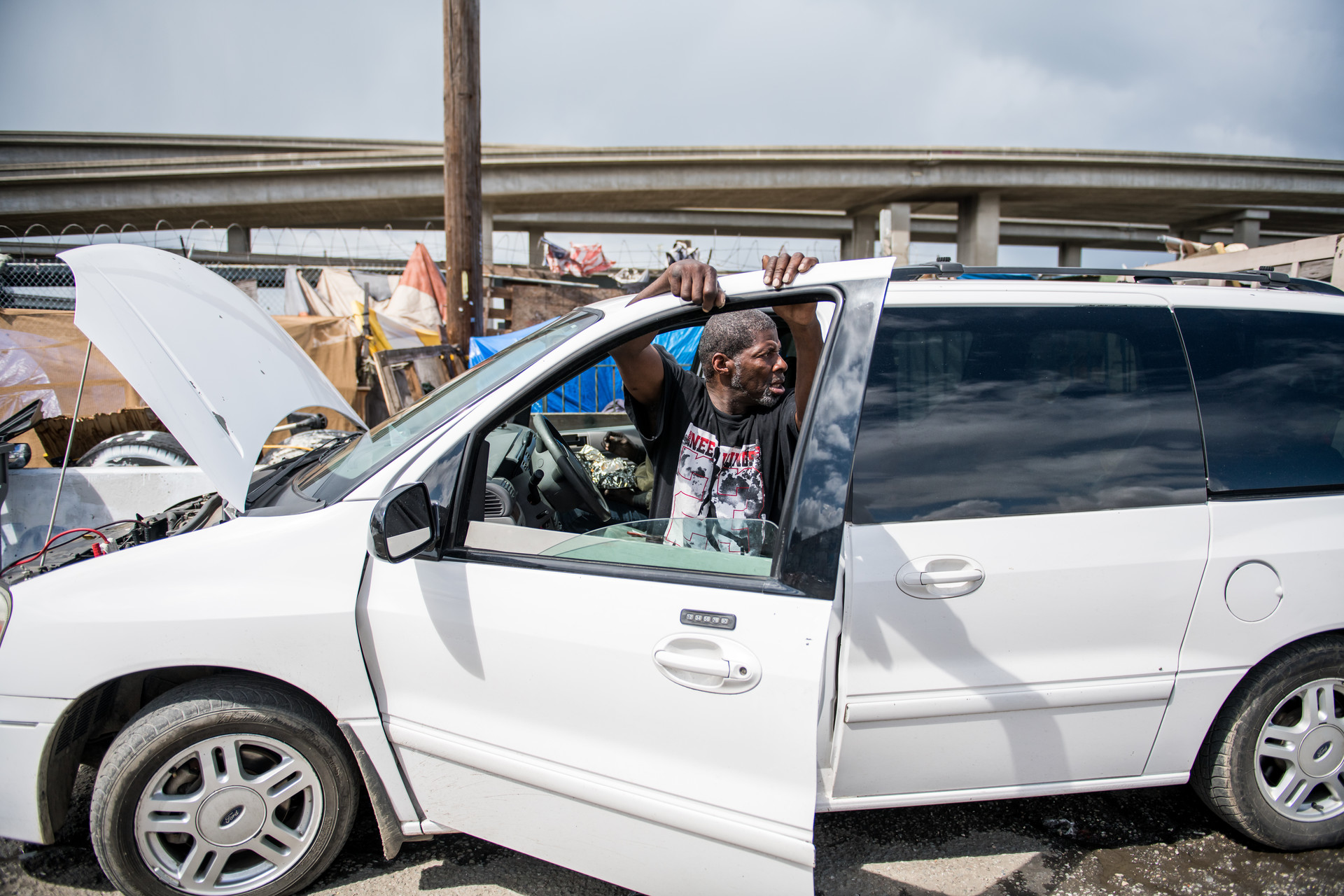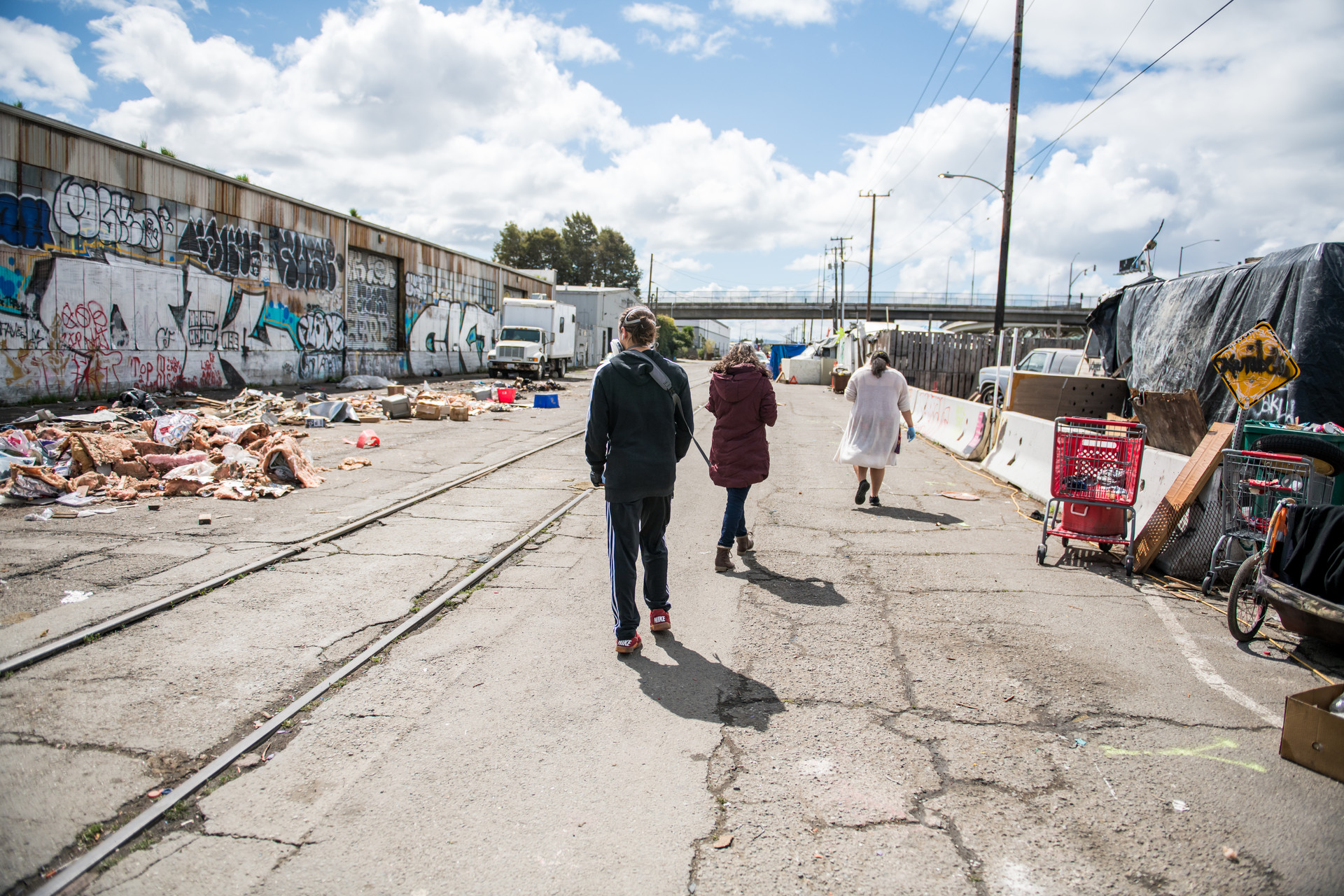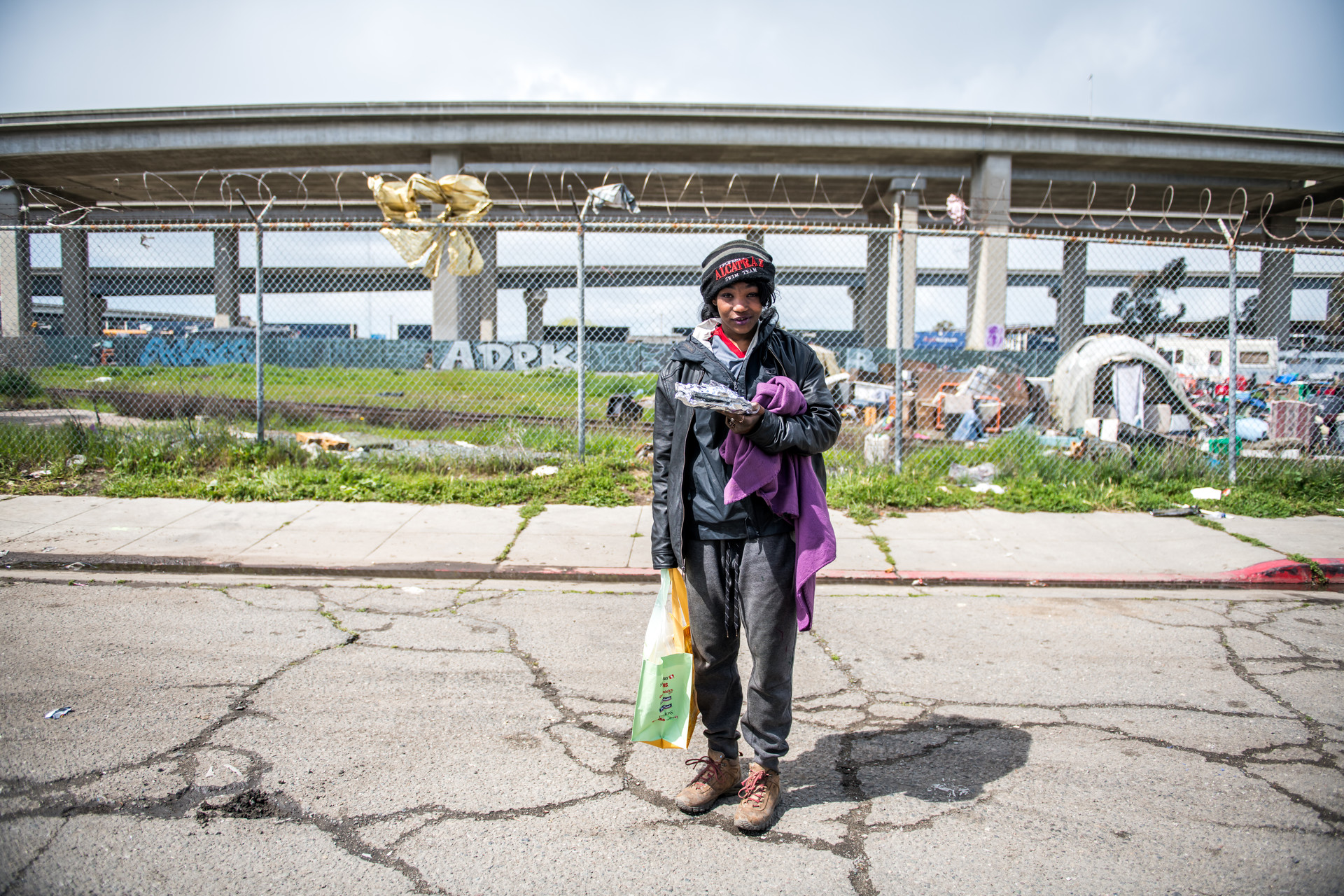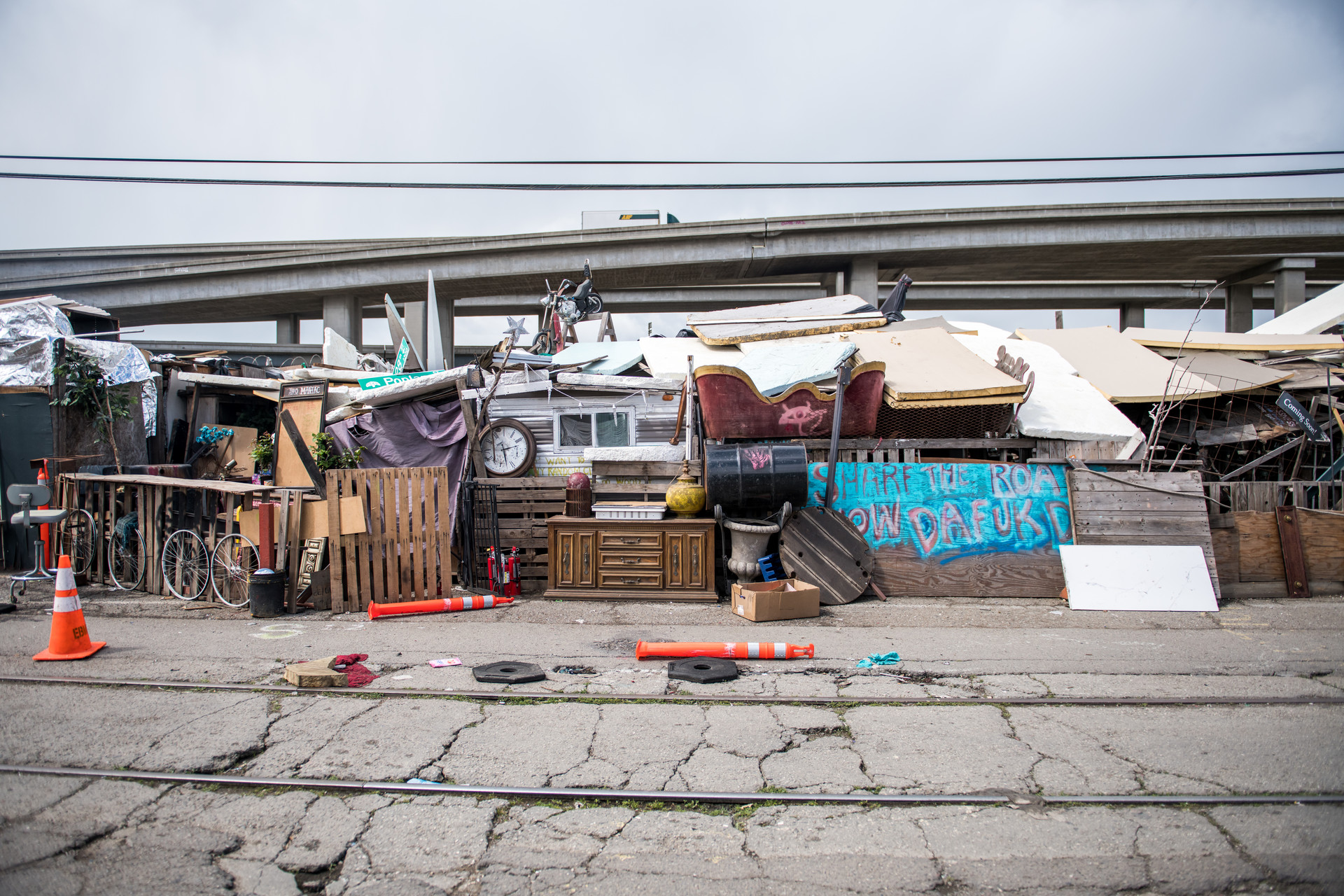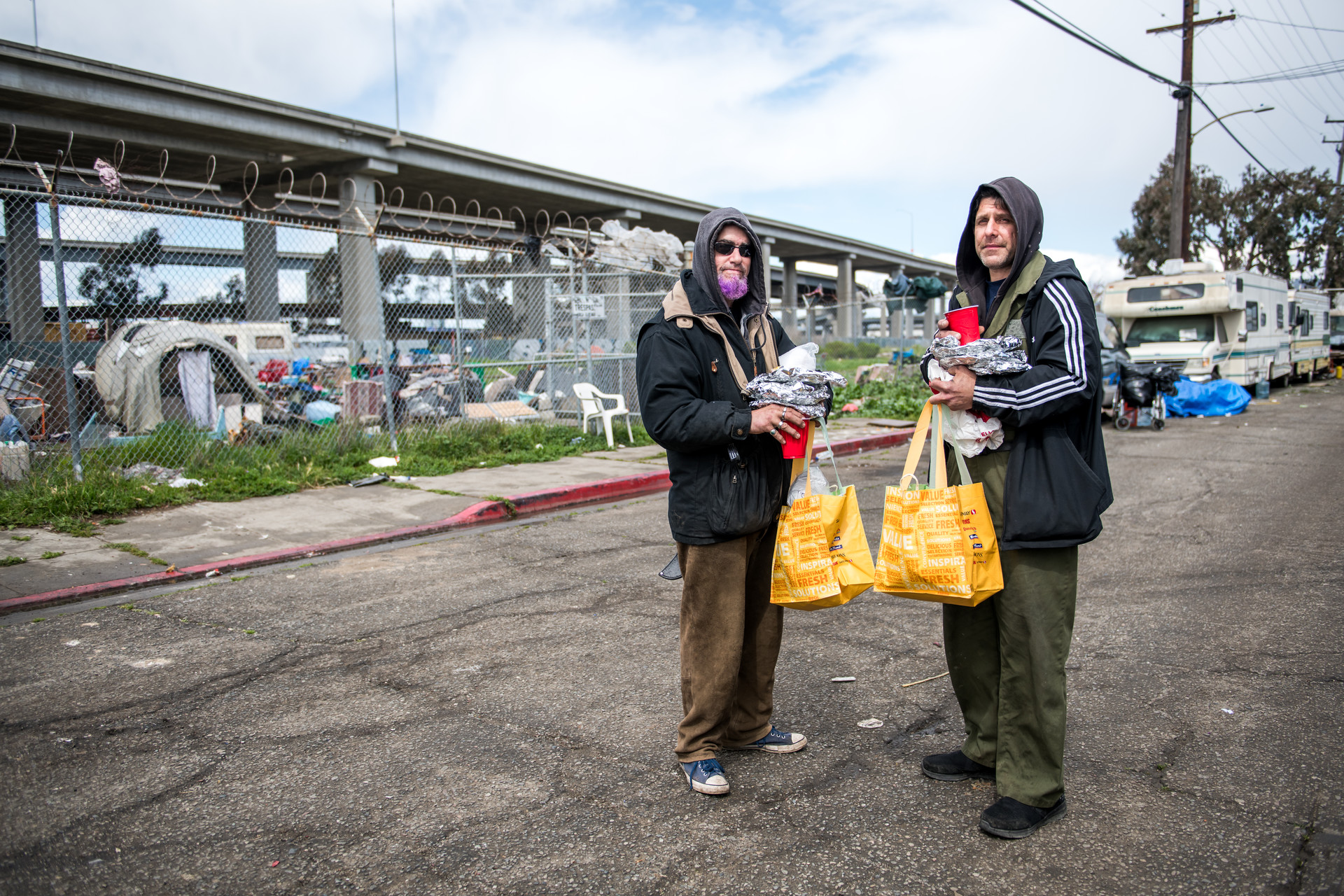“People on the street don't have access to resources — to the things you’re supposed to have to stay safe from this virus,” she says. “When you have no running water, washing your hands, keeping your stuff clean is a struggle. These are things we deal with every day.”
As cities throughout the region scramble to secure shelter and emergency services for some of their unhoused residents, Tiny and her team of collaborators have taken matters into their own hands.
This week, Tiny's group, along with volunteers from United Front Against Displacement and Self-Help Hunger Program, distributed mostly donated cleaning and sanitation supplies to homeless residents living in encampments in West and East Oakland and in San Francisco's Tenderloin District.
Tiny says her group had been handing out food and other critical supplies long before anyone even heard of the coronavirus. But now they're now doubling down on those efforts, scrambling to get hold of as many cleaning and healing materials as they can in an effort to fill the large gap left by the many homeless service providers that have had to scale back their services.
“This is called interdependence, and we do it with or without a virus, because we're struggling with a virus called poverty,” she says, noting the underlying current of mutual aid that circulates within the homeless community. Homeless people may be vulnerable, she adds, but many are also impressively resourceful. “People outside have a lot of skills and are doing their darndest to stay alive and clean and organized.”
